Politics
French parliament set to eject PM in blow to Macron
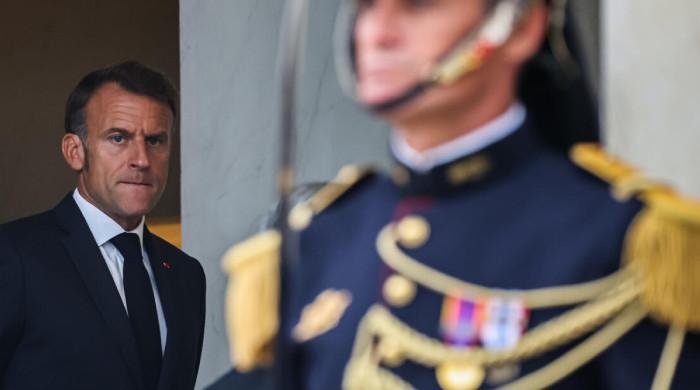
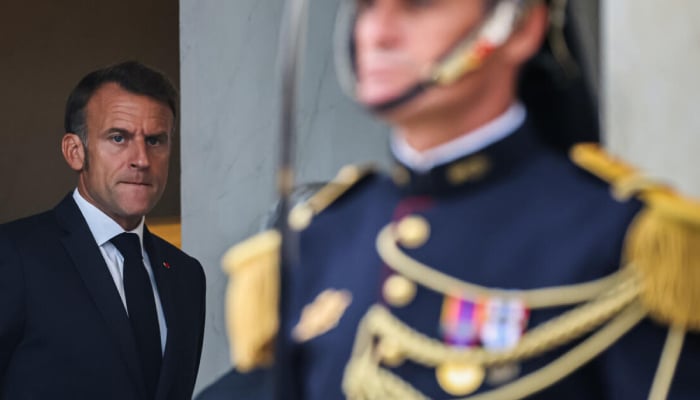
- Opposition unites to topple Bayrou’s minority govt.
- Francois Bayrou to address Assembly before voting.
- Macron calls on parties to demonstrate “responsibility”.
France’s parliament is expected to oust Prime Minister Francois Bayrou on Monday after just nine months in office, plunging the key EU member into new political uncertainty and creating a painful dilemma for President Emmanuel Macron.
Bayrou blindsided even his allies by calling a confidence vote to end a months-long standoff over his austerity budget, which foresees almost 44 billion euros ($52 billion) of cost savings to reduce France´s debt pile.
Opposition parties across the board have made it clear they will vote against his minority government, making it highly improbable he will get enough backing to survive — he needs a majority of the 577 MPs in the National Assembly.
Bayrou will become the second French prime minister in succession to have suffered such a fate after Michel Barnier was ejected in December after only three months in office.
Bayrou, the sixth prime minister under Macron since 2017, has given no indication in days of TV interviews that he expects to survive the vote.
Instead, he has asked: “Has our country understood the seriousness of the situation it finds itself in?”
He is expected to address parliament in a final bid for support from 1300 GMT with the vote awaited from 1700 GMT.
Poor polls
After the vote, Macron will face one of the most critical decisions of his presidency: appointing the seventh prime minister of his mandate to thrash out a compromise, or call snap elections in a bid to have a more accommodating parliament.
The president is spearheading European efforts to end Russia´s war on Ukraine, boosting his international profile.
But polling at home does not make pretty reading, and he is forbidden from standing a third time in 2027.
According to a poll by Odoxa-Backbone for Le Figaro newspaper, 64% of French want Macron to resign rather than name a new prime minister, a move he has explicitly ruled out.
Some 77% of people do not approve of his work, Macron’s worst-ever such rating, according to an Ifop poll for the Ouest-France daily.
Addressing the crisis after an international summit on Ukraine, Macron called on French political forces on Thursday to demonstrate “responsibility” and ensure “stability”.
“The reshaping of the world is changing many things for our Europe. In this context, France must continue to move forward,” he said.
But alongside political upheavals, France is also facing social tension.
A left-wing collective calling itself “Block Everything” is calling for a day of action on September 10 and trade unions have urged workers to strike on September 18.
Sleeping giant
There is no guarantee an election would result in any improvement in the fortunes of Macron’s centre-right bloc in parliament.
But there are signs that the president could be eyeing cooperation with the Socialist Party (PS), a one time giant of French politics that has fallen into the doldrums in recent years.
At a meeting on Tuesday of the centrist parties that support him, Macron urged them to “work with the Socialists”, a participant said, asking not to be named. All those present were opposed to snap elections, the person added.
Socialist leader Olivier Faure has made no secret of his readiness to take the post of prime minister, even producing his own draft budget.
But Socialist backing would not automatically attract support from other left-wing forces.
“It would be workable if the Socialist Party says: ‘We’re overthrowing the alliance and governing with the central bloc,'” said a close associate of Macron, adding that for now the president is keeping his cards close to his chest.
Politics
Three Turkish police officers, six Daesh militants killed in clash, amid national crackdown
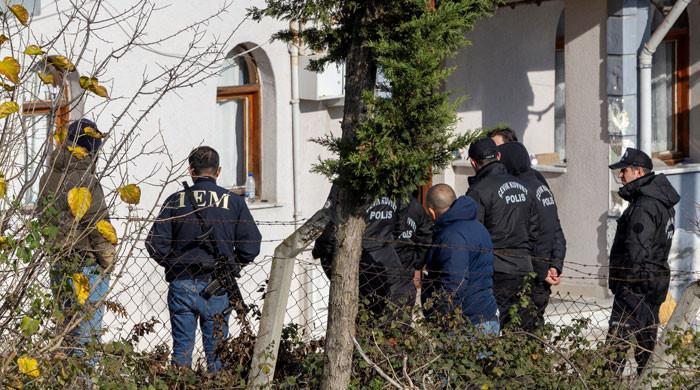
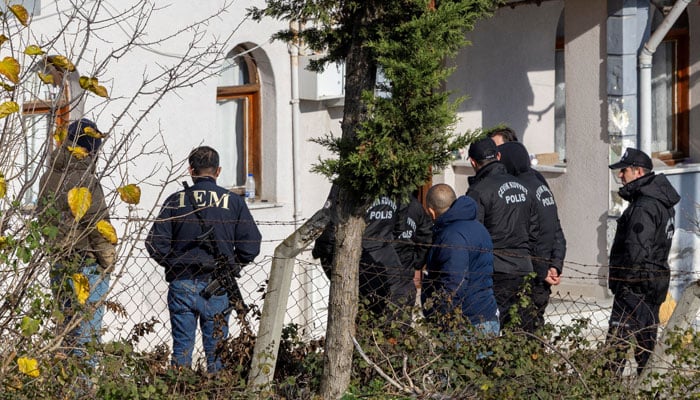
- All six militants were Turkish citizens, says minister.
- Turkey arresteded 138 Daesh suspects last month.
- 108 addresses raided across Turkey early on Monday.
YALOVA: Three Turkish police officers and six Daesh militants were killed in a gunfight in northwest Turkey on Monday, the Interior Minister said, a week after more than 100 suspected Daesh members were detained for planning Christmas and New Year attacks.
Interior Minister Ali Yerlikaya said eight police and another security force member were wounded in a raid on a property in the town of Yalova, on the Sea of Marmara coast south of Istanbul. More than 100 addresses were raided nationwide early on Monday.
Turkey has stepped up operations against suspected Daesh militants this year, as the group returns to prominence globally.
The US carried out a strike against the militants in northwest Nigeria last week, while two gunmen who attacked a Hanukkah event at Sydney’s Bondi Beach this month appeared to be inspired by Daesh, Australian police have said.
On December 19, the US military launched large-scale strikes against dozens of Daesh targets in Syria in retaliation for an attack on American personnel.
Raid lated hours
Police raided the house in Yalova on the suspicion that militants were hiding there overnight. Sporadic gunfire was heard during the operation, which lasted nearly eight hours, according to a Reuters photographer at the scene.
Last week, Turkish police detained 115 suspected Daesh members they said were planning to carry out attacks on Christmas and New Year celebrations in the country.
Yerlikaya told reporters that the militants killed in Monday’s attack were all Turkish citizens, adding that five women and six children were brought out of the property alive.
In the last month, police arrested a total of 138 Daesh suspects and carried out simultaneous operations on Monday morning at 108 different addresses in 15 provinces, he added.
In a post on X, President Tayyip Erdogan offered his condolences to the families of the police officers killed, and said Turkey’s fight with “the bloody-handed villains who threaten the peace of our people and security of our state” will continue “both within our borders and beyond them.”
Wave of Daesh attacks in 2015-17
Police had sealed off the road approaching the house in the early hours and smoke was visible rising from a nearby fire, while a police helicopter flew overhead.
The Istanbul chief prosecutor’s office said last week that Daesh militants were planning attacks against non-Muslims in particular.
Almost a decade ago, the militant group was blamed for a series of attacks on civilian targets in Turkey, including gun attacks on an Istanbul nightclub and the city’s main airport, killing dozens of people.
Turkey was a key transit point for foreign fighters, including those of Daesh, entering and leaving Syria during the war there.
Police have carried out regular operations against the group in subsequent years and there have been few attacks since the wave of violence between 2015-2017.
Politics
Indonesia nursing home fire kills 16: official


A fire at a nursing home on the Indonesian island of Sulawesi killed more than a dozen people, with three others injured, a local official said Monday.
Firefighters received the report of the blaze at 8:31pm Sunday at a nursing home in the North Sulawesi provincial capital Manado, said the city’s fire and rescue agency chief Jimmy Rotinsulu.
“There were 16 deaths; three (people) had burn injuries,” he told AFP.
Many bodies of the victims were found inside their rooms, Jimmy said, adding that many of the elderly residents were likely resting in their rooms in the evening when the fire broke out.
Authorities managed to evacuate 12 people — all unhurt — and transfer them to a local hospital, he said.
Footage aired by local broadcaster Metro TV showed the fire engulfing the nursing home, while locals helped to evacuate an elderly person.
Deadly fires are not uncommon in Indonesia, a Southeast Asian archipelago of more than 17,000 islands.
A fire tore through a seven-storey office building in Indonesia´s capital Jakarta this month, killing at least 22 people.
In 2023, at least 12 people were killed in the country´s east after an explosion at a nickel-processing plant.
Politics
Deal was closer than ever to end Russia’s invasion of Ukraine: President Trump says
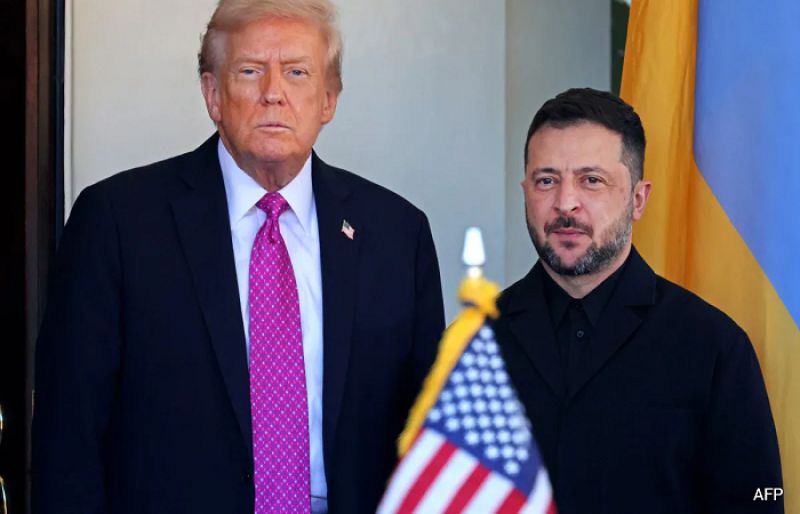

US President Donald Trump said that a deal was closer than ever to end Russia’s invasion of Ukraine but reported no apparent breakthrough on the flashpoint issue of territory after new talks with the warring countries’ leaders.
Trump, who had promised a peace deal on day one of his nearly year-old presidency, said it would become clear within weeks whether it was possible to end the war that has killed tens of thousands of people since February 2022.
In a pre-New Year’s diplomatic sprint, Trump brought Ukrainian President Volodymyr Zelensky to Florida, where the two met with top aides over lunch, a day after Russia unleashed major new attacks on residential areas of the capital Kyiv.
Much like when Zelensky last met Trump in October, Russian President Vladimir Putin also spoke shortly beforehand by telephone with the US leader, who immediately insisted that Moscow was “serious” about peace despite the assault.
“I really believe we’re, Mr President, probably closer than — far closer than — ever before with both parties,” Trump said with Zelensky at his side in the tea room of his Mar-a-Lago estate.
“Everybody wants it ended,” Trump said.
After their talks, Zelensky and Trump spoke jointly by telephone with key European leaders, who have been particularly alarmed about any decisions that would embolden Russia.
Zelensky said that he and European leaders could return jointly for talks with Trump in Washington in January.
The Ukrainian president stayed studiously polite throughout his visit, mindful of his disastrous White House meeting on February 28 where Trump and Vice President JD Vance publicly berated him for not being sufficiently grateful.
Territory impasse
Trump, for all his stated optimism, gave few details on the progress he cited, instead digressing into familiar grievances about his predecessor Joe Biden, who committed billions of dollars for Ukraine’s defense, and speaking of his own friendly rapport with Putin.
Trump acknowledged continued disagreement between Kyiv and Moscow on territory. The current plan, revised after weeks of intense US-Ukrainian negotiations, would stop the war at the current frontlines in the eastern Donbas region and set up a demilitarized area, while Russia has long demanded territorial concessions.
“It’s unresolved, but it’s getting a lot closer. That’s a very tough issue, but one that I think will get resolved,” Trump said.
Trump offered to address the Ukrainian parliament to promote the plan — an idea, however unlikely, that Zelensky was quick to welcome.
Zelensky has voiced an openness to the revised US plan, marking Kyiv’s most explicit acknowledgement yet of possible territorial concessions, although Ukrainians voters would need to approve it in a referendum.
By contrast, Russia has shown no signs of compromise, as it sees hope in the grinding gains it has made over four years against tough Ukrainian defenses.
The Kremlin in its readout of talks between Putin and Trump called on Kyiv to make a “brave decision” and immediately withdraw troops from Donbas, casting European leaders as the impediment to peace.
“Russia and the United States share the same position which is that the Ukrainian and European proposal for a temporary ceasefire (…) would only prolong the conflict and lead to a resumption of hostilities,” the Kremlin’s diplomatic advisor Yuri Ushakov told reporters.
’90 percent’ agreed by Ukraine
Trump’s advisors have previously floated the idea of offering NATO-like security guarantees to Ukraine, meaning in theory that the alliance’s members would respond militarily if Russia attacks again.
Zelensky said that the peace framework laid out by Trump was “90 percent agreed” and that “US-Ukraine security guarantees: 100 percent agreed.”
Zelensky said the two sides were still finalizing a “prosperity plan” for Ukraine as well as the sequencing of the various actions.
Russia had adamantly rejected any entrance of the former Soviet republic into NATO.
In its latest assault with drones and missiles, Russia knocked out power and heating to hundreds of thousands of residents during freezing temperatures.
“If the authorities in Kyiv don’t want to settle this business peacefully, we’ll resolve all the problems before us by military means,” Putin said on Saturday.
-

 Sports3 days ago
Sports3 days agoBrooks Koepka should face penalty if he rejoins PGA Tour, golf pundit says
-

 Sports1 week ago
Sports1 week agoPatriots vs. Ravens (Dec 21, 2025) Live Score – ESPN
-

 Politics1 week ago
Politics1 week agoUS intercepts oil tanker off Venezuelan coast, Reports
-
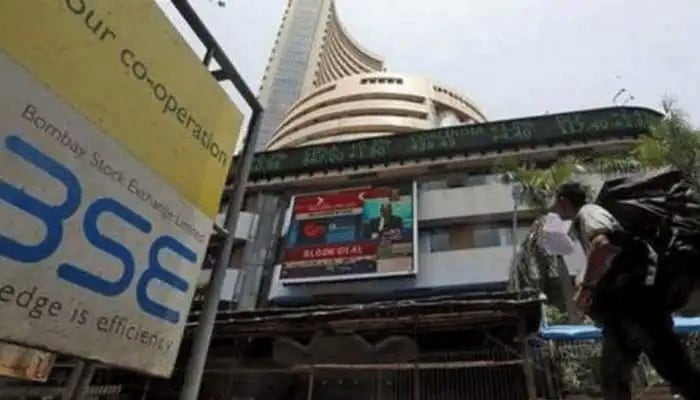
 Business1 week ago
Business1 week agoNeptune Logitek Shares List At 26% Discount, IPO Investors Suffer Nearly Rs 30,000 Losses
-
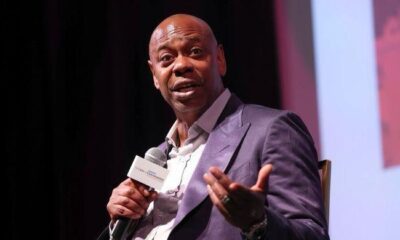
 Entertainment1 week ago
Entertainment1 week agoDave Chappelle marks another milestone with unexpected Netflix debut
-

 Sports1 week ago
Sports1 week agoWATCH: Pakistan’s winning moment as Green Shirts clinch U19 Asia Cup title
-

 Entertainment1 week ago
Entertainment1 week agoPentatonix sings “Christmas Time Is Here”
-
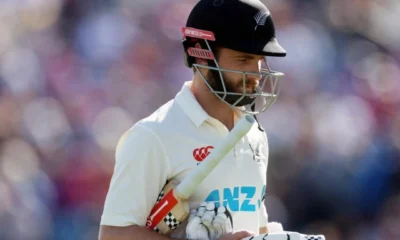
 Sports1 week ago
Sports1 week agoWilliamson opens up about New Zealand future | The Express Tribune






